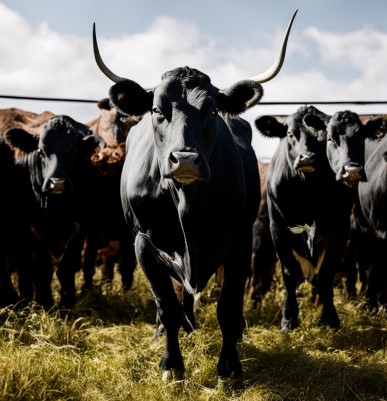Paraguay prepares to halt foot-and-mouth disease vaccinations

In a bid to expand its presence in international MEAT markets, Paraguay has announced its intention to stop vaccinating against foot-and-mouth disease from 2026. The proposal was presented by the National Animal HEALTH and Quality Service (Senacsa), which stated that its plan is based on technical, economic, and health considerations.
"It's not a question of price , it's a question of access," said José Carlos Martín, the HEAD of the organization, detailing the arguments for the strategy, which has already been submitted to the World Organisation for Animal Health (WHO).
Technical and economic foundations
As Martin and specialists Victor Maldonado and Primo Feltes explained, Paraguay currently spends approximately US $16.9 million annually on vaccination ($6.9 million), certification ($9.5 million), and health monitoring ($500,000). Senacsa calculated that once the country becomes free of foot-and-mouth disease without vaccination , it could open up new commercial opportunities and even increase its annual revenue to US$200 million in the cattle sector thanks to improved carcass disposal.
The Health Agency acknowledged that the study did not include indirect costs of vaccination, deeming them difficult to quantify. However, Martin assured that the decision was based on concrete evidence and consensus between the public and private sectors, reached after several meetings in 2020 and formalized in 2023.
The official plan calls for notifying the WHO in January or February 2026 about the final vaccination cycle this year. Paraguay will then prepare a public health dossier to request international recognition as a vaccination-free FMD country.
"74% of meat sold globally comes from countries without vaccination. Paraguay accounts for only 4%. Where do we want to be?" Martin stated, also noting that the change could benefit currently limited sectors such as pork and sheep. He noted that in the case of sheep, "only half the animal is exported," and achieving the new status would allow the sale of bone-in cuts, currently restricted for health reasons.
Between opportunity and responsibility
In public statements, the President of Senacsa stated that "it makes no sense to continue recommending vaccination against a disease that no longer exists in the country and whose eradication has been proven." This statement, however, was not discussed in open technical forums, and its validity will depend on future health assessments.
Finally, Martin stressed the importance of institutional trust to move forward in this direction and stated that the goal is not to abandon protection, but to “achieve the maximum status that Paraguay deserves.”
Read together with it:
- The IEA sees a risk of a decline in oil production in Russia due to sanctions.The IEA sees a risk of reduced oil production in RUSSIA due to US sanctions , but maintains its production forecast. According to the IEA, Russian oil exports will remain unchanged.There is a "significant downside risk" to Russia's oil production forecast due to US sanctions, the International Energy Agency (IEA) said in a report.BLOOMBERG . The agency's experts believe that the latest US sanction...
- Низкое предложение и устойчивый спрос: в Аргентине растут цены на мясоЦены на говядину снова выросли, что отразилось на полках супермаркетов и в мясных магазинах. За последние две недели розничные цены выросли на 8–12%, а на некоторые популярные отрубы рост превысил 15% по сравнению с октябрем. Тем не менее, продажи остаются высокими: потребители продолжают покупать, принимая новые цены и закрепляя тенденцию, которая повторяется каждый год в конце года, когда спрос ...
- Колумбия: При экспорте скота сертификация и прослеживаемость больше не являются необязательнымиВысококачественное животноводство, особенно при экспорте, требует сертификации и прослеживаемости. Это необходимые условия для выхода и конкуренции на многих международных рынках, а также на некоторых всё более требовательных внутренних рынках. Колумбийское животноводство не является исключением из этих правил, и, хотя предстоит ещё многое сделать, всё большее число ферм и компаний внедряют эти ме...
- Китайский рынок мяса: консолидация, меры безопасности и проблема субпродуктов«Мы завершаем выставку CIIE в Шанхае, в целом хорошую выставку, где мы видим консолидированные цены, как это было с начала года, но в то же время рынок ожидает решения по защитной мере, определения которой должны быть даны в конце ноября», — сказал он Valor Agregado Agro. Лидер пояснил, что глобальная ситуация характеризуется «колебаниями на международном рынке, вызванными интенсивной геополитичес...
- США объяснили снятие санкций с проекта АЭС в Венгрии с участием РоссииСША хотят, чтобы строительство АЭС «Пакш-2» завершилось, это необходимо, чтобы Венгрия стала энергетически независимой, заявил Рубио. Орбан сообщал, что после встречи с Трампом добился исключения из санкций Соединенные Штаты вывели из-под санкций проект АЭС «Пакш-2» в Венгрии, подтвердил госсекретарь Марко Рубио после встречи министров иностранных дел стран G7 в Канаде. Ранее об этом говорил венге...
- Ukrainian companies have been hit by US sanctions due to their ties to Iran.The United States imposed sanctions on two Ukrainian companies, considering them to be front companies for an Iranian agent engaged in procurement for the Iranian state corporation HESA, which produces, among other things, Shahed drones.Two companies registered in Ukraine have been subject to US sanctions related to Iran , according to a statement from the US Treasury Department's Office of Foreig...


